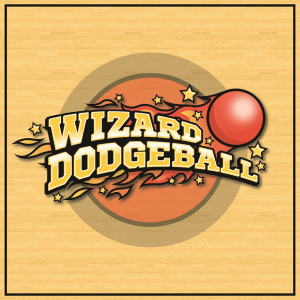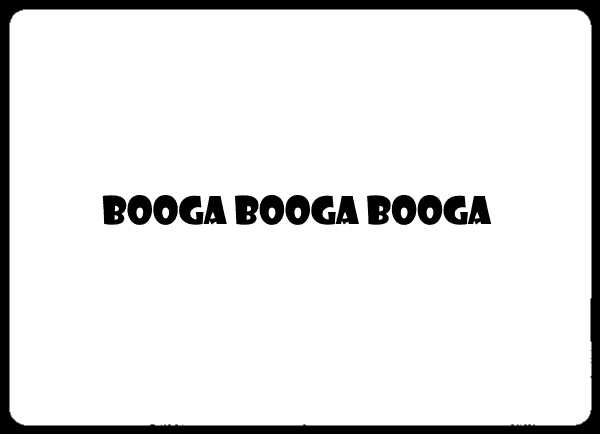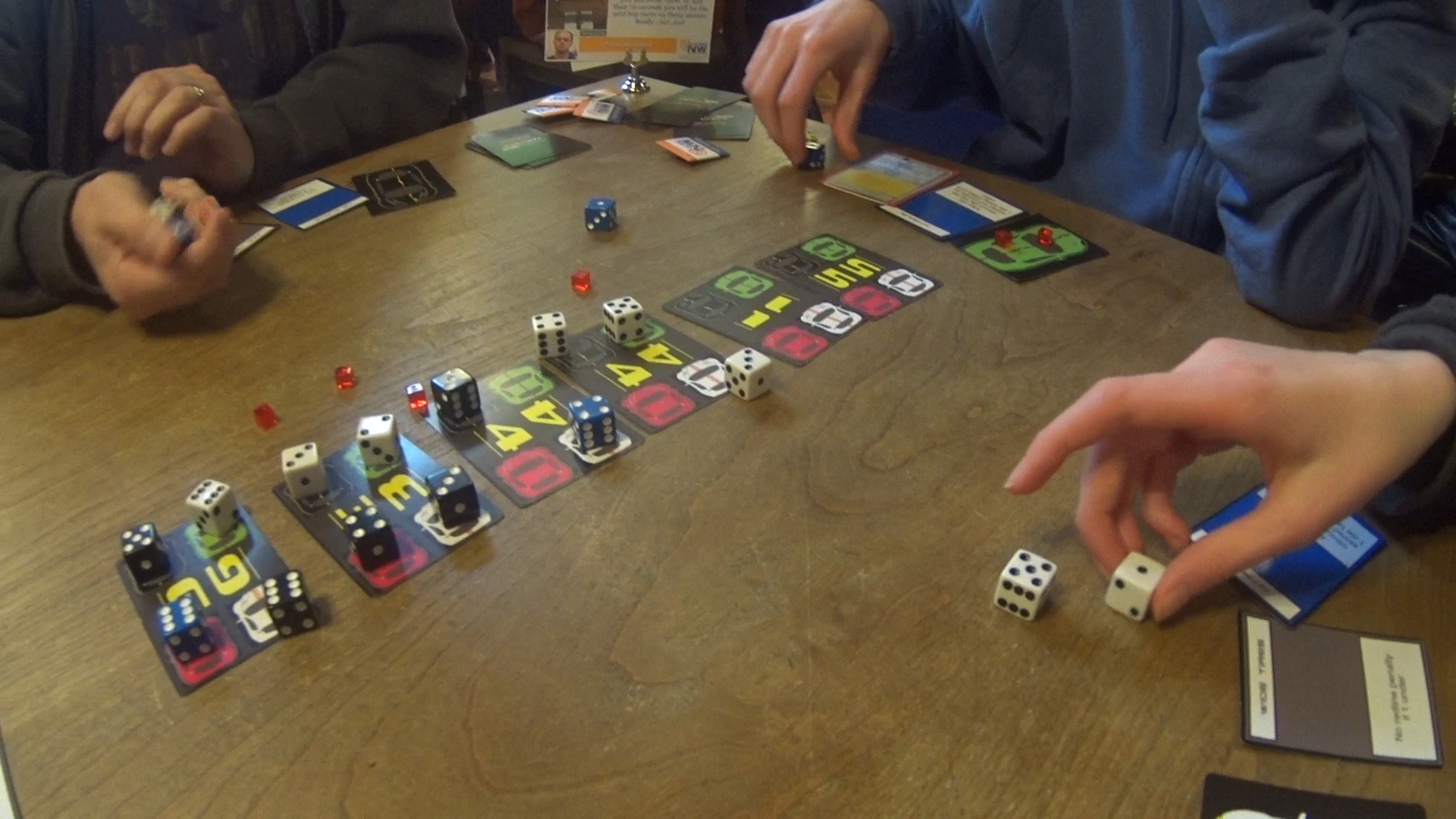Role Selection is an interview series in which we chat up folks who work, live, and play board games in a variety of ways to learn about the roles in the hobby they’ve chosen.
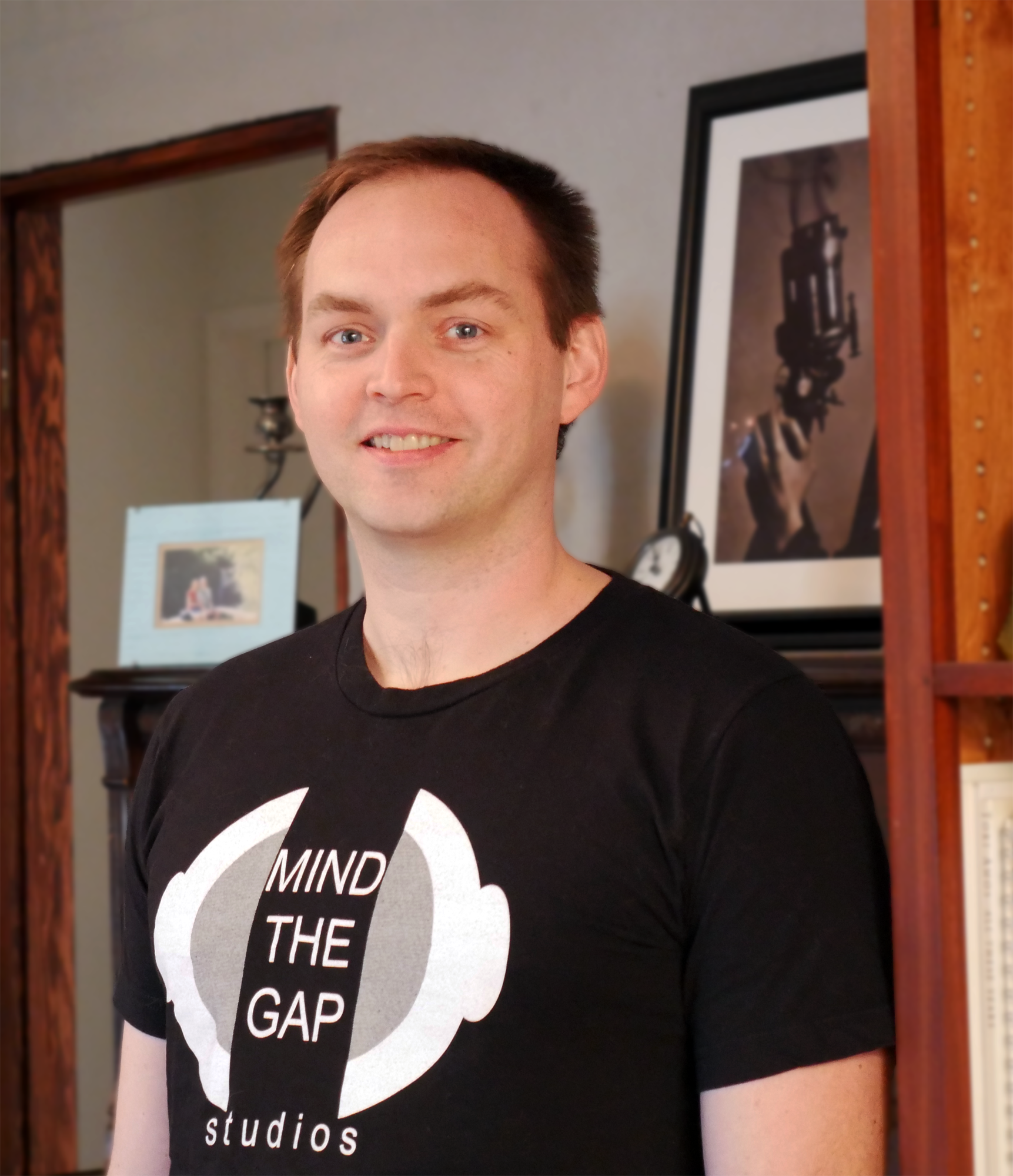 Character Name: Peter Newland
Character Name: Peter NewlandRole: Kickstarter Underdog as part of mindthegapstudios.com
Location: Lynnwood, Washington
Day Job: Controls engineer for an aerospace automation company
Early Game History: Electronic Battleship, Monopoly, Chess, Checkers, Dungeons & Dragons
Current Favorites: Onitama and Tammany Hall
Quote: “My advice is to try and keep trying. You already know what life is like if don’t.”
Character Bio: Full disclosure: I backed game designer Peter Newland’s first Kickstarter for his game, Wizard Dodgeball.
I also backed his zombie-themed party game, ZtoZ. And I backed Wizard Dodgeball’s Kickstarter relaunch.
None of these attempts funded. This was a puzzle to me. I’d first met Newland when we were finalists for the first Tabletop Deathmatch design competition. Compared to some of the other games, including my entry, Wizard Dodgeball looked polished.
Also, Newland had been hitting the convention circuit pretty hard to demo the game, it had a fun theme, and he’d solicited a handful of pre-launch reviews. If a game was primed to fund on Kickstarter, it was Wizard Dodgeball.
So much for what I know.
But that’s what made me want to talk to Newland, to find out what he’d learned from his past Kickstarter efforts, and to discover what inspired him to come back for another try with his latest effort, Project NOS. I started by asking what drives him to create games.
The Interview:
Peter Newland: I am cursed with the DIY gene. It’s the same thing that turns PCs into GMs, and that’s really where it all started. After moving to the Seattle area, I remembered how much fun D&D was in college, and I got a few friends excited about it. This was right when 3.0 was coming out. Since I was the one that knew the most about the game, I started creating the stories.
For a very long time, I’ve wanted to make video games but was never able to get beyond the initial learning curve of turning code into a manipulable world. Most of the early trips to PAX would find me in one of the standard, ‘How to get into the industry/developing/etc’ panels.
At some point I don’t remember, an alternative was presented: making games out of cards and cardboard. Since I knew how to interact with that medium, that’s the direction I headed.
Matt Golec: What’s your favorite part of designing? What part is hard for you?
PN: My favorite part is the initial and, usually very vague, ideas that I think would be really fun to make a board game about, and then the many attempts to whittle it down into a recognizable shape.
The most difficult part is making that idea go from a playable experience to a deeply satisfying experience. I seem to get stuck with that last bit of polish, probably from sporadic, lengthy development.
MG: What made you turn to Kickstarter for Wizard Dodgeball? I assume you tried working with traditional publishers. What were your expectations going in?
PN: Yes, I tried the traditional path with Wizard Dodgeball initially, and that wasn’t working out. I probably went about that wrong by only sending out pitches after I had heard back from the previous one which slowed the process to a crawl. And I was only pitching via email as I didn’t really know what I was doing at the time.
Kickstarter was appealing because you didn’t have to wait months to hear back that the most recent publisher wasn’t really interested. You didn’t have to figure out which company’s catalog it would fit in. It looked like if you had a good, original idea and could present it in a passable way, you’d be able to just squeak the funding.
If At First You Don’t Succeed…
MG: The relaunch for Wizard Dodgeball featured nice new art and improved rules, and while you doubled the amount of money raised, the campaign still fell a little short. What lessons did you take away from these and the smaller ZtoZ campaign?
PN: I’m still trying to figure out where I went wrong with those, honestly.
The second Wizard Dodgeball and ZtoZ campaigns I felt better prepared for as far as reviews and mailing list is concerned. I was much more active on social media during both campaigns but, possibly too active to the point of annoyance.
I feel like I had no reviewer focus and sent demos to everywhere I get my game information from – which, looking back, I’m not sure is the audience for those two games. The reviewers liked the games for the most part, but I’m not sure they were really what their audiences were interested in.
The upside is all of those reviews did attract a fairly interested publisher to give Wizard Dodgeball a look and there’s a 50/50 chance it could still happen.
ZtoZ failing, in retrospect, isn’t that surprising after playing with more random people. Did you know people don’t like acting foolish in front of other people, especially strangers? Turns out the acting portion was far more intimate for most people than I had anticipated.
For Project NOS I’ve been in touch with reviewers that I feel have the same audience that I am aiming for. I’ve already let my mailing list know that the campaign is on the way.
I’m trying a different approach to the primary video this time, too, which will be along the lines of the teaser I put together a month ago. Less of me, more of the game.
MG: You’ve released these and other games (such as Flapjackflipout) as print and play files on your website. What do you think of print and play as an option for reaching gamers?
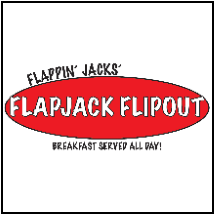 PN: I think PnP is good for a couple of reasons. My first reviews of Wizard Dodgeball came from the PnP files on BoardGameGeek, so I’m probably biased.
PN: I think PnP is good for a couple of reasons. My first reviews of Wizard Dodgeball came from the PnP files on BoardGameGeek, so I’m probably biased.
Games are expensive to make and, therefore, to buy. I like that PnP allows people to still have a game based on what they can afford.
But the primary reason I like PnP is it gives me a way to say the game is done. I may tweak it if I find something glaring on a future playtest, but releasing to PnP allows me to move on mentally.
MG: Your next game, Project NOS is going up on Kickstarter any day now. I demoed the game, and I can honestly say it’s tight, fun and exciting. I’m looking forward to backing it. But what really impresses me is your perseverance. Tell me what excites you about Project NOS and what keeps you motivated to return to Kickstarter with the game?
PN: Project NOS was thought up sitting on an airplane watching one of the Fast and the Furious movies. During one of the races I thought to myself that I’d like a racing game that actually felt like a race. And that’s what this does. I get really energized playing it, similar to playing Escape (The Curse of the Temple).
I have pitched this one around too, but it’s so casual no one I asked really seemed interested. But it’s small and I like it so I thought I’d try Kickstarter again.
I thought that with ZtoZ (a party game where players speak silly phrases in a zombie voice and if other players laugh, they lose), but I didn’t realize at the time that people are really timid when it comes to acting in public.
As far as motivation goes, it’s the dream, isn’t it? To say ‘I made this’ and take it to a convention where people want to buy it and have fun with a thing you made? I’m still aiming for that.
MG: There’s a lot of designers out there considering Kickstarter for the first time. As a hardened veteran, what advice would you give them?
PN: The only thing I’m good at with Kickstarter right now is failing and dusting myself off to try again, for better or worse.
My advice is to try and keep trying. You already know what life is like if don’t. The worst that can happen is you will still be doing the same thing you’re doing now with the bonus of having a one-of-a-kind a game that you can play with your friends and family.
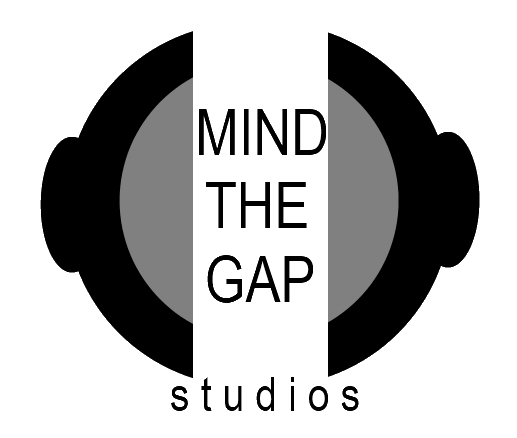
Will this racing-themed Kickstarter attempt be the one to put Newland over the finish line? Follow along when Project NOS launches on Kickstarter.
In addition to Newland’s website, you can most readily find him on Twitter.
Matt Golec is game designer with a background in print journalism. Combining these skills, he aims to explore and give voice to the many different jobs within the hobby industry that don’t frequently get reported on. He can be best reached via Twitter.
You can discuss this article and more on our social media!
Photo Credits: Multiple Photos from Mind The Gap Studios.

